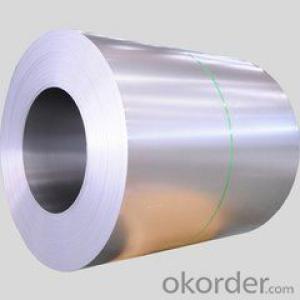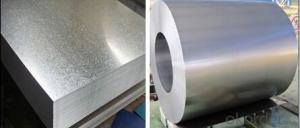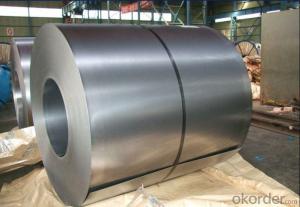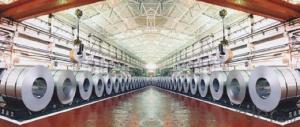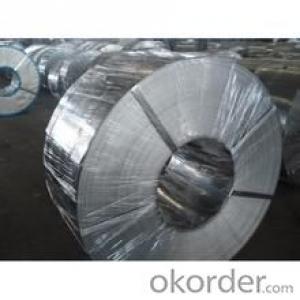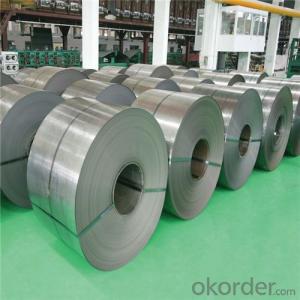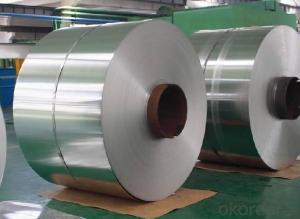Structure of Cold Rolled Steel Descriptions
- Loading Port:
- China main port
- Payment Terms:
- TT OR LC
- Min Order Qty:
- 25 m.t.
- Supply Capability:
- 10000 m.t./month
OKorder Service Pledge
OKorder Financial Service
You Might Also Like
1.Structure of Cold Rolled Steel Description:
The raw material of cold rolled steel coil/sheet is high quality hot rolled product, and after pickling continuous rolling, degreasing, annealing,skin pass,slitting and cut to length line etc. Along with it many kinds of new technology and new process of global cold rolling production have been applied. Therefore the quality of the goods could be guaranteed. The product is widely used in outdoor and interior decoration, furnishing manufacturing, home appliance, automobile etc.
2.Main Features of the Cold Rolled Steel:
• Excellent process capability
• Smooth and flat surface
• Workability, durability
• Excellent heat resistance performance
• High strength
• Good formability
• Good visual effect
3.Cold Rolled Steel Images
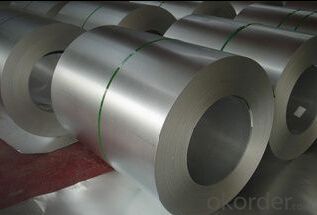
4.Cold Rolled Steel Specification
Standard:AISI,ASTM,DIN,GB,JIS,JIS G3302 ASTM 653M EN10142
Grade: Q195~Q345
Thickness: 0.16mm~1.5mm,0.16-1.5mm
Width: 1250,600-1250mm
Coil weight:3-12 MT
Coil ID:508/610mm
Chemical composition:
C | Si | Mn | Cr | Ni | P | S |
0.150 | 0.476 | 11.231 | 12.50 | 0.900 | 0.039 | 0.010
|
5.FAQ of Cold Rolled Steel
We have organized several common questions for our clients,may help you sincerely:
1.How about your company?
A world class manufacturer & supplier of castings forging in carbon steel and alloy steel,is one of the large-scale professional investment casting production bases in China,consisting of both casting foundry forging and machining factory. Annually more than 8000 tons Precision casting and forging parts are exported to markets in Europe,America and Japan. OEM casting and forging service available according to customer’s requirements.
2.How to guarantee the quality of the products?
We have established the international advanced quality management system,every link from raw material to final product we have strict quality test;We resolutely put an end to unqualified products flowing into the market. At the same time, we will provide necessary follow-up service assurance.
3. How long can we receive the product after purchase?
Usually within thirty working days after receiving buyer’s advance payment or LC. We will arrange the factory manufacturing as soon as possible. The cargo readiness usually takes 15-25 days, but the shipment will depend on the vessel situation.
- Q: Which steels were origianally designed to be used to cut and shape metals and other materials?- alloy steel- high carbon steel- carbide steel- tool steelthanks
- Tool steels These were designed to be used as hardenable, dimensionally stable materials for cutting of metals. The alloying elements they contain (including tungsten, vanadium, niobium and molybdenum as well as chromium)are there to produce carbides (mainly) which are stable at dull-red heat. This cannot be achieved with high carbon steels, carbide steels or (normal) alloy steels which all lose their strength and hardness at metal cutting temperatures.
- Q: What is the maximum width of steel coils?
- The maximum width of steel coils can vary depending on various factors such as the type of steel, manufacturing capabilities, and intended use. However, in general, steel coils typically have a maximum width of around 2,200 millimeters or 86.6 inches. This width is commonly used in the steel industry for standard-sized coils. It is important to note that specialized steel coils or custom manufacturing processes may allow for wider widths, but these would be less common and may require specific equipment or processes.
- Q: So, I'm looking into steel toe paddock boots. I'll be using them around horses, horses that I don't know and that are rescue horses. I'm currently looking at Equitector the Moorland paddock boots. They're $200, and I think I have to order them online. I like boots that are this style (the Moorland style)... Is there any other brand of boots that has steel toe paddock boots, that are cheaper or that I can buy in stores?
- I personally know a trainer who is friends with a cowboy who got his toes amputated by a horse stepping on his steel toed boot. I personally prefer a broken toe or a bruised toe. I wouldn't recommend them. If you get your toe stomped and you happen to be standing on pavement or other hardpacked surface...you're going to regret you ever bought them. there's a reason why not a lot of horse people wear them. As for price....$200 is an average price for good boots of any kind. My first western leather boots were Tony Llamas and they were $200. I bought them YEARS ago and they're still just great.
- Q: I have a steel support beam can you remove one of the poles . the steel beam set on sender blocks on both side of the foundation. I have three steel beams support beam across the basement,I just want to remove one pole, can that be done.
- You need to measure the beam and go to an engineering guide and see what the load ratings are. You can never remove the end supports but the middle support may possibly be taken out if the beam can handle the load and or you add some gusseting and reinforcement to the original beam. You should probably call a building engineer to consult on this.
- Q: My 8-year-old and 9-year-old boys have approached me with an interesting question. Does fire burn steel? One says yes, the other says no. Help me to settle yet another debate :)
- It can burn it... but not the sort of fire you would find at home... Ive actually done it before in a silversmithing class with a very hot blow torch. It takes a long time, the metal first goes pink, then glowing orange red... it stays that way for a while, and then 'cracks' kind of loudly and basically disintergrates very suddenly. A torch this hot has a very hard (noisy) flame which is very transparent. But you cant burn it in the fireplace.
- Q: Can steel coils be cut?
- Yes, steel coils can be cut using various methods such as shearing, sawing, or laser cutting, depending on the thickness and type of steel.
- Q: what is the difference between metal and steel
- well, steel is a type of metal. It's sort of like asking the difference between a bug and an ant, an ant is a bug, but not every bug is an ant. Likewise, steel is metal, but not all metal is steel. Gold is metal, Silver is metal, Iron is metal, Steel is metal.
- Q: I want to purchase a set of knives made of carbon steel and want to be able to store them on a magnetic knife strip for handy access, I just wasn't sure if this alloy would stick to a magnet????Thanks
- Carbon steel knives will stick to a magnet. Stainless steel may not.
- Q: Perform three sets of 15 repetitions several times a week and you will soon have buns of steel.
- Bunz Of Steel
- Q: Does aluminum or steel hold up better? We found a steel for 1/2 the price of aluminum, obviously its heavier but any other downsides? rust faster ect? also, does anybody know, in PA do you pay sales tax on trailers? and do dealers normally give you license plates to get the trailer home with? we live 3 hours away from the dealer so thats why i want all details :) would stink if i messed up!!
- I bought a steel trailer. It was much heavier than the aluminum, as you said. But really, they are equivalents. As long as you have enough power to haul the trailer, you can use steel. We never had a rust problem with ours. In PA you do pay sales tax on horse trailers, stock trailers, etc. I forget about the plates, though. It's been a few years since we got our trailer. I would assume they would give you something to get the trailer home with though.
Send your message to us
Structure of Cold Rolled Steel Descriptions
- Loading Port:
- China main port
- Payment Terms:
- TT OR LC
- Min Order Qty:
- 25 m.t.
- Supply Capability:
- 10000 m.t./month
OKorder Service Pledge
OKorder Financial Service
Similar products
Hot products
Hot Searches
Related keywords
